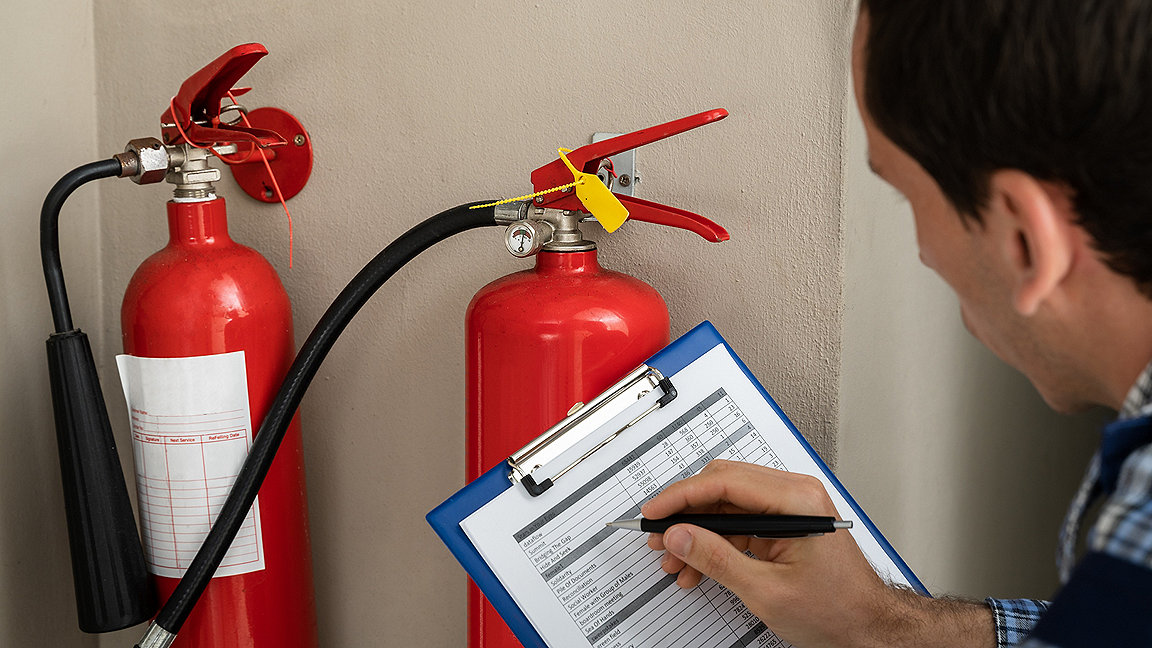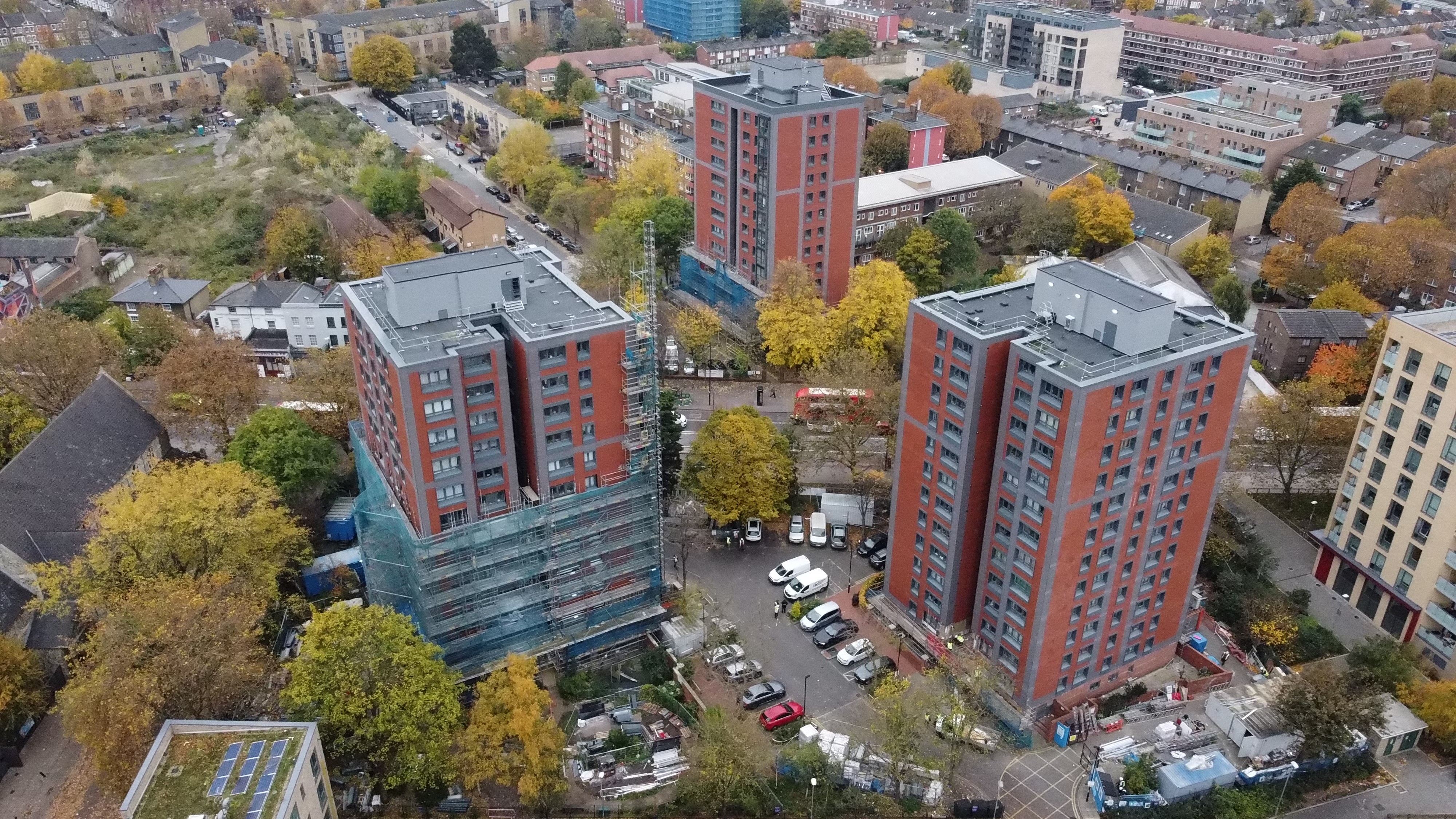
You may think that, to make a meaningful contribution to fire safety, you need to be an expert in chemical engineering and material science, or a chartered fire engineer who can model complex smoke dynamics. But this is not the case. To me this highlights the benefits of a multi-skilled approach to specialised problems.
My own journey into fire consultancy – like that of many surveyors – started at university during my BSc (Hons) Building Surveying degree, which I undertook from 2009 to 2012 at Leeds Beckett University. Alongside the mandatory modules that gave me a legislative and professional background to fire safety, I chose to take an optional module in my second year focusing on fire safety through design and building management.
It was the mixture of regulation, construction technology and human behaviour that initially piqued my interest in the subject, alongside a respect for the natural power of fire.
Professional roles spark passion for fire safety
My first professional role as a graduate building surveyor built on this interest. In this job, I carried out some fire risk assessments and was involved in designing refurbishments and extensions, which necessitated amendments to existing fire strategies.
It was in my second role as a chartered building surveyor that I started to focus on fire safety full time. Under the tutelage of my line manager and mentor, my interest turned into a passion. We worked closely together, and it was during this time the key role of the surveying profession became apparent.
I was working in the healthcare sector on a recently built hospital and getting deep into the literal nuts and bolts of implementing fire safety. Every hour, I was drawing on my understanding of the RICS competencies Building pathology, Construction technology and environmental services, Contract practice and Legal/regulatory compliance.
While I was cross-referencing design details with manufacturers' information, and checking them against the fire strategy and legislation, I realised that there was a gap in the way we design and construct safe buildings.
Some people involved in the project designed the fire safety strategy, others specified the systems that went into the building, others installed and built them, and then there were those who were managing them in use. But there was no one who linked all these tasks together.
Tying together the different functions
Now, five years later, the need for coordination of these jobs is being recognised in the requirement for a golden thread of safety information, soon to be introduced under the Building Safety Act as per the recommendations of the Hackitt Review. However, at the time all I could see was a process that wasn't functioning.
As a building surveyor, I had developed the skill set to join the dots and resolve problems. I could investigate the issues and provide the client with clear recommendations where others were unable to see the full picture.
The building surveyor's skill set means we are well suited to protecting buildings from fire, which is demonstrated in the following competencies.
-
Asset management: prioritising and managing fire safety efficiently across an estate
-
Contract administration: managing and monitoring construction or remedial works
-
Construction technology and environmental services: understanding the detailed construction systems used in a building to achieve fire safety goals
-
Design and specification: understanding how to design and specify as well as procure construction or remedial works for quality
-
Legal/regulatory compliance: interpreting regulation and legislation in relation to a building's construction and management.
Helping ensure fire safety
Building surveyors have a clear part to play in helping the industry promote and ensure fire safety by implementing new ways of working, such as focusing on fire safety management throughout a building's lifecycle and across the multiple stakeholders, and providing advice to allow clear paths for decision making throughout the design process, as well as benchmarking data requirements to allow informed safety management in use.
As surveyors, we also have an equally vital contribution to make in improving the significant volume of building stock constructed and managed under older building regulations and legislation and what was a reactive rather than proactive mindset.
Both these roles will be vast and varied providing any willing surveyor with a rewarding and socially worthwhile career.
'Building surveyors have a clear part to play in helping the industry promote and ensure fire safety by implementing new ways of working'
Cohesive team to manage fire safety
You won't find a better skill set for fire consultancy than that of a chartered building surveyor. Can building surveyors do it alone? Absolutely not. Yet we are a key and influential part of ensuring safety.
I can proudly say I have a role in a multidisciplinary fire consultancy team, half of whom are building surveyors and the other half are specialists in the field. We work together as a cohesive team to manage fire safety for clients.
The team is involved from the outset of projects throughout a building's lifecycle. To quote one of the building surveyors in the team: 'I have never had such a varied workload, on a more varied range of buildings, using as many of my surveying skills as I do now.'
RICS global building standards director Gary Strong comments: 'Fire safety was never a sector that chartered surveyors were widely associated with. After the Grenfell Tower fire that has changed and, as illustrated here, our members are finding many opportunities to be leaders in the field. For more information, please visit the RICS Fire Safety Hub.'
Joseph Campbell is a partner, fire safety consultancy lead at Rider Levett Bucknall and RICS Young Building Surveyor of the Year 2021
Contact Joseph: Email
Related competencies include: Design and specification, Fire safety, Inspection, Legal/regulatory compliance

